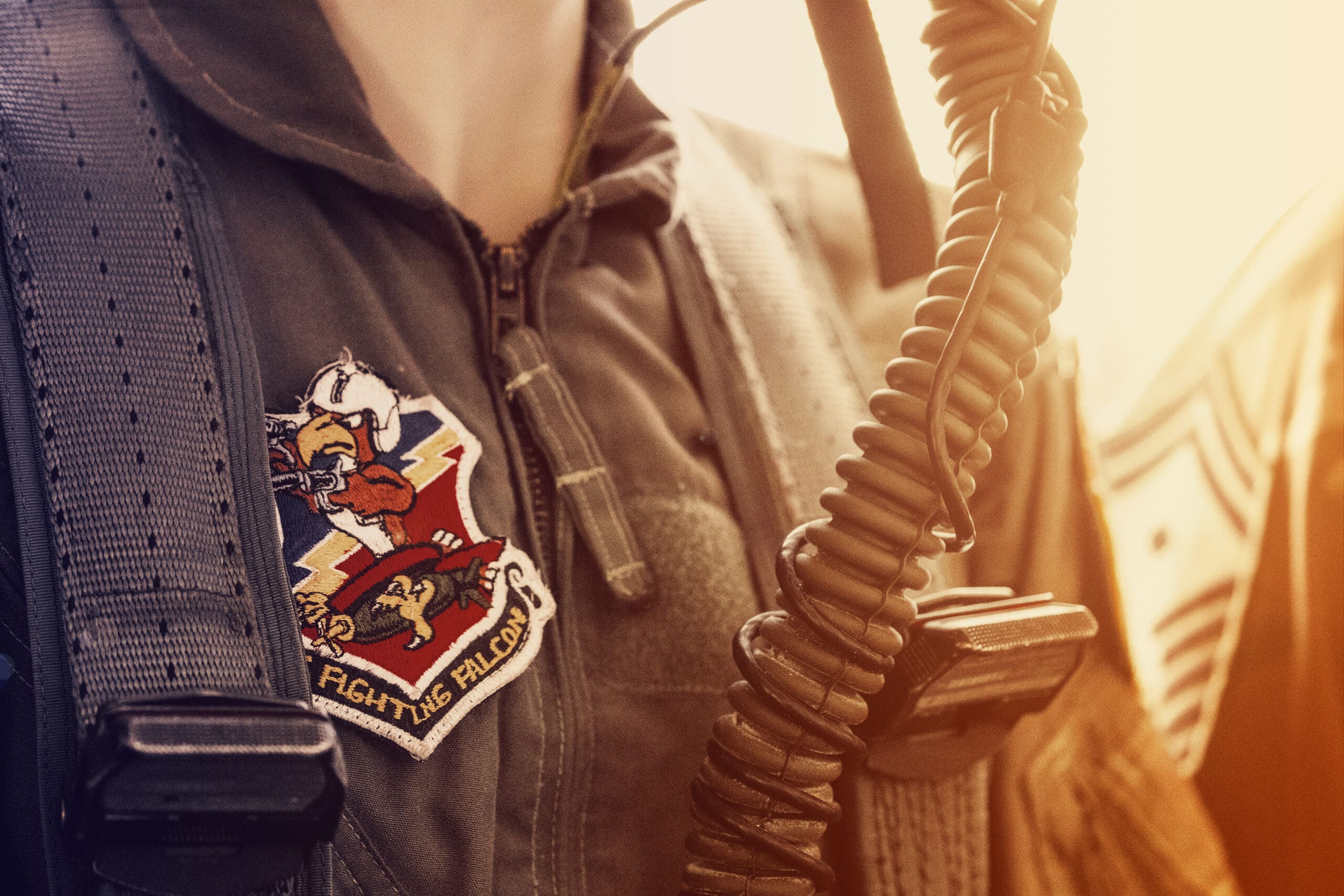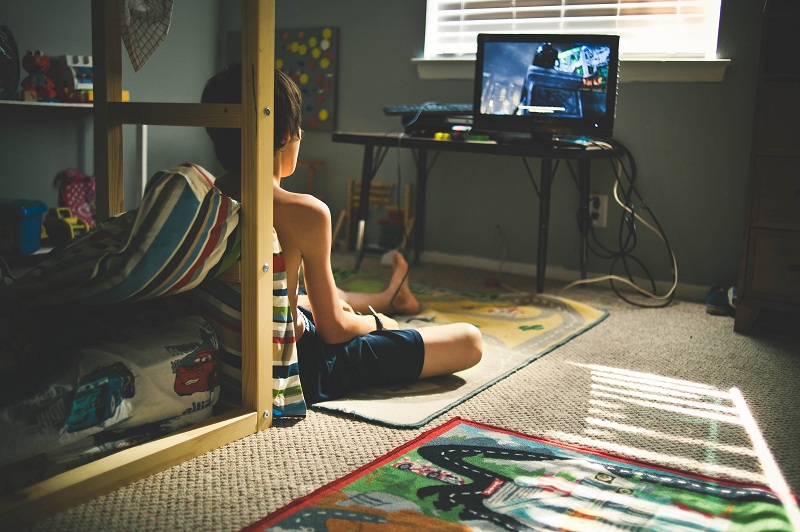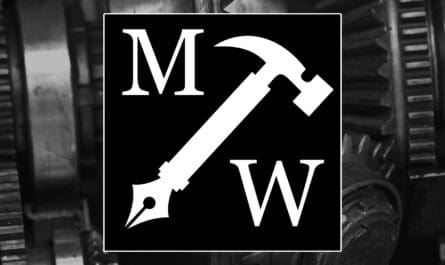The man’s souvenirs were in a box somewhere. He had kept it handy for a few years then put it away. In a desk, then in the basement. Maybe up in the attic. He wasn’t sure these days.
Just pictures, he said. Some ribbons, too, but he had only worn them once and that was right after the war. Nothing much, really.
Pat was nine years old and Sunday mass had ended. He and Pop were outside, thanking Father Galloway for the service and then moving along.
Then Pop was talking with Mr. Spinelli, the electrician who sometimes came over to the house. President Kennedy had been on tv the day before, talking about some place called the Bay of Pigs. It was a stupid name, the boy thought, and as the two men talked Pat got bored. He knew he should be polite and pay attention, but his mind kept wandering off. It came right back when Mr. Spinelli mentioned some things he had saved from the war.
Mr. Spinelli had been a gunner in a Navy dive bomber. The plane was a Dauntless. Pat thought that was terrific and asked how many times he had bombed ships. Mr. Spinelli didn’t remember. A few, anyway, but that was the pilot’s job. His own was to face the other way and shoot at Jap planes chasing them.
Pat asked if it was fun. The man shook his head and said it scared him to death. That every time they dove was like falling backwards off a cliff. He said he just did it because it needed doing.
The boy was disappointed. World War II was amazing, after all. A grand adventure. The grandest ever. Filled with all kinds of fantastic stuff. Fighter planes and machine guns and battleships and . . .
Pat asked if he could see the box and then Jimmy was looking down at him, placing a gentle hand on his shoulder and saying that was enough. Being firm, but loving, too. They only had each other, after all.
Mr. Spinelli smiled and said he’d find it eventually. He kept meaning to clear out that attic. There was a ton of dusty crap up there. Maybe a few bird nests, too. He laughed, then sighed.
“Maybe next time, Pat.”
He said it whenever they met, and Pat learned to stop asking. It was so disappointing because the idea wouldn’t let him go. It captivated him, like Jim Hawkins seeing the treasure chest at last. Like the children pushing through the wardrobe into Narnia.
Magic, he thought. Every bit of it.
* * * * *
Jimmy Dolan had a box. An old wooden one that once held cigars. Brown as the earth with little brass hinges and a clasp. On the top a cowboy waved from under a palm tree. The words over the tree were in Spanish. Pat wondered what they meant but never asked. It was what was in the box that mattered.
His father kept it on a shelf in the back of his bedroom closet. Occasionally he’d bring it down and his son would study it with wonder. In it were some snapshots. Black and white mostly, but a few were in captivating color. Pictures of Pop and his friends when they were crazy young. Looking even younger than the big kids in the neighborhood.
None of the pictures showed action, which was disappointing. None of Pop making heroic charges. None of him throwing a grenade or shooting a bazooka at a tank or leaning bravely forward as his boat raced toward Omaha Beach.
The boys in the pictures were always happy. Grinning as they leaned against trucks. Grinning as they smoked cigarettes and played cards. Grinning as they sat outside a café with girls sitting on their laps.
Sometimes they were bareheaded and shirtless. Boys at ease. Smiling like they had heard a great joke right when the camera clicked.
When Pat asked why this was, his father didn’t answer right away. Jimmy Dolan was a thoughtful man, wise enough to think before he spoke. But this time was different, as if he hadn’t understood the question.
Then, finally, he said it was because those were the only times they could take pictures. Because the rest of the time they were in action. Because they were on the move. Because they were grabbing sleep or trying to stay warm or trying to stay dry.
The box held other things, too. His father’s corporal’s stripes and a clip from his rifle. A wooden beer coaster that had German words on it. A fifty-caliber round with the powder removed, or so his Pop had said. The boy often wondered what would happen if he hit it with a hammer.
If the boy waited long enough before asking again, the father would bring out the box. Usually, but not always. Even when he did, though, he seemed to treat the box like it only held cigars. Nothing special really. But the son would have none of it, and together they’d study its contents once more.
And then Pop would put it away again. Time for dinner, he would say, or for bed. Or they had to wash dishes, or the game was on or . . .
Pop was the kindest, most even-tempered man in the world. He never shouted at his son. He never scowled at him or threatened to punish him – and he never ever hit him. Pat knew kids who weren’t so lucky, and he loved his father all the more for it.
But, sometimes, there would be exceptions. They would be looking at the souvenirs and his father’s face would go blank, as if seeing something no one else could. Or his voice would change, no longer quiet now but brisk, as if they were running late for something. Once he stood up fast, saying that was enough. Slamming the box shut and putting it away.
Slowly, Pat realized that he only had to know that something was wrong, even if he couldn’t figure out what. With Pop it was the war. It was his silence that did it. Pat would ask one time too many and the room would seem to grow darker, the air colder, even in summertime. The effect was haunting. When his father got that far away look, the boy knew to shut up or else change the subject.
Sometimes Pat would leave the room for a while, or even the house. To take out the trash or put the note in the box for the milkman. To bring the clean clothes upstairs or to do his homework or whatever else needed doing and, once again, he would vow to keep quiet.
For a while.
* * * * *
The following Sunday they saw Mrs. Kelly and her son Bill, who was in Pat’s fourth grade class. Mrs. Kelly said her husband wasn’t feeling well and couldn’t come to church that morning. Mr. Kelly had been in the Navy and so Pat asked if he was seasick because he had heard him talk about it once. Bill looked away, embarrassed, and his mother laughed, but a little too hard.
Walking home, Pop said not to ask about Mr. Kelly if he wasn’t there next time.
“Why?” asked Pat. “Will he be seasick then, too?
Jimmy shook his head.
“It’s not seasickness, Patrick. It’s from drinking.”
“Yeah, but you have beer every night, Pop.”
“I drink enough, son.”
“And Mr. Kelly?”
His father sighed.
“Mr. Kelly drinks more than enough.”
They walked in silence for a while, and when his father spoke again his words were gentle.
“A lot of bad people were trying to sink his ship. They were trying to kill him. Trying very hard.”
Pat thought he got it.
That’s what you did in war, after all. But since America had won, that was all that mattered.
Right?
* * * * *
He looked forward to Sundays. Not for the services but the discussions Pop would have with other men afterward. It was the same for going to Foley’s. They often went there on weekends, for an early dinner and to see neighbors and watch the Sox if they were playing that day. There would be boys Pat’s age there and he would talk with them about school or baseball or, cautiously, girls.
The parents would talk about grown-up stuff and the kids would ignore them – until someone mentioned the war. A few men had been in France at the same time as Pop. Others had been in Italy or England or out in the Pacific. They all had their stories and, Pat was certain, their boxes.
* * * * *
Mr. Pelachek lived two blocks away. In the Coast Guard he had helped rescue sailors from ships that had been torpedoed. Pat thought that was great, but the man only said they had done what they could. It was hard and dangerous and freezing cold most of the time.
Pat knew about his service because of a joke the man once shared with Pop on a bright Sunday in autumn. The boy didn’t really get it, but he knew it wasn’t something he should hear outside a church. Mostly it was about Mr. Pelachek’s time in training, and Pop said it had been the same for him.
When they met the following Sunday, Pat asked, “Did you sink any U-boats?”
The man laughed quietly.
“No, son, I didn’t.”
“Not now, Pat,” said his father. “Sorry, Ed. This fella here is doing great in history. Drives his teacher crazy, yelling answers faster than she asks the questions.”
The boy’s cheeks burned. It wasn’t true but he knew to keep quiet about it.
“Good for you, Patrick,” the man replied. “Keep it up.”
The boy nodded.
Pat liked Mr. Pelachek. He was a nice man who always smiled, even though he was alone. He got married right after the war, but then his wife died from cancer. Still, he was cheerful, although how managed it was a mystery to the boy.
Pat’s mother had been gone five years. She had a weak heart, and then, one night, she died in her sleep. It hadn’t seemed real. His father helped him to be strong, showering him with so much love it dulled the edges of his grief. Together, they endured. But Mr. Pelachek – a nice man, just like Pop – had done it alone. It seemed so much worse.
* * * * *
Then there was Mr. Trebenko, whose son Alex was on Pat’s little league team. One Saturday while waiting their turns at bat, Alex said his dad hated carnival rides.
“That’s crazy,” said Pat.
“Yeah,” Alex agreed, “But he hates ‘em all. Well, everything except merry go rounds.”
“Why those?”
“He says it’s ‘cause the horses never leave the ground.”
“Merry go rounds are boring,” Pat declared.
“Yeah, but he hates Ferris wheels. Roller coasters, too.”
“How come?”
“He was in the Air Force. Air Corps, I mean.”
“Was he a pilot?”
“Nah. He just talked on the radio.”
“Jeez, anyone can do that.”
“Yeah, but on a Flying Fortress.”
“Awesome.”
Alex shrugged but Pat pressed on.
“Does your dad have stuff from the war? Stuff he keeps in a box?”
“Not a box,” said Alex. “Just this big envelope. It’s brown and got a lot of tape on it. Some pictures, I guess. Some maps, too, and letters from my grandma. I only saw it once.”
“Don’t you ask to see it?”
“No. I mean, yeah, but he keeps saying no. Next time.”
Next time, Pat grumbled. Always next time.
* * * * *
On Pat’s birthday he and his father took the train up to Winthrop. His parents loved the beach and had brought him there every summer, even before he could walk.
They were walking on the shore drive when they met Mr. Kaplan, one of his father’s friends from work. He was older than Pop and his hair was gray. It made him look serious, but when he saw them he smiled, and when he learned Pat had just turned ten he insisted on buying ice cream to celebrate.
Together they walked to the candy store at the top of the drive. There were picnic tables there with a terrific view of the sea and cloudless sky. And when he was gifted with a double-scoop of chocolate on a sugar cone, the moment became perfect.
When Mr. Kaplan had opened his wallet, Pat saw the wrinkled edge of an old photograph. Unable to help it, he asked the question.
“Were you in the war, Mr. Kaplan?”
His father nudged him to lay off, but Mr. Kaplan nodded and said yes, he was. He had been an engineer in the Marines.
Pat asked where he went.
“Well,” he said, “I was in Hawaii quite a while, then a place called Guam and another one called Tarawa.”
“Were they fun?”
“Hawaii was beautiful. Still is.”
“And the others?”
“Those weren’t so great, Pat.”
Opening his wallet again, he brought out the picture. In it, three Marines squatted on a beach beside a pile of what looked like scrap metal. Like a pyramid of black boxes and pipes. The Marines were smiling the same way Pop and his friends had done. One of the Marines was Mr. Kaplan, looking a little younger than Pop looked now.
“What are those?” the boy asked, pointing to the pile.
“Machine guns. They’re burned out. Fire them long enough and they won’t shoot anymore.”
Pat studied the picture and counted quickly. After thirty he gave up.
“You used these to shoot Japs?”
“We did,” Mr. Kaplan sighed. “Those boys with me – they were good fellas. Good kids, just like you, Pat. A few days later, they were both killed.”
“In combat?” he asked. Knowing he shouldn’t. Knowing he should keep his mouth shut.
“Yes, Pat. That’s right.”
“How many Japs did they kill with the guns?”
Jimmy kicked his foot and said finish his ice cream.
Sighing, the older man put his picture away, then raised his eyes to meet the boy’s.
“All of them, Pat.”
* * * * *
He got it eventually.
Sort of.
It didn’t really make sense, but maybe that was the whole point.
They didn’t want to talk about it, but they didn’t want to forget it.
They kept treasures they didn’t want to look at and stories they didn’t want to tell.
They’d never do it again, but they wouldn’t have missed it for the world.
And that was all.
Maybe next time, Pat.
Mike McLaughlin is a writer for The Wrath-Bearing Tree and for Vietnam Veterans of America. His historical features have appeared in The American Veteran, WWII History and American Heritage. Not to be outdone, he has written three novels and dozens of short stories. He lives in Boston with his family.




